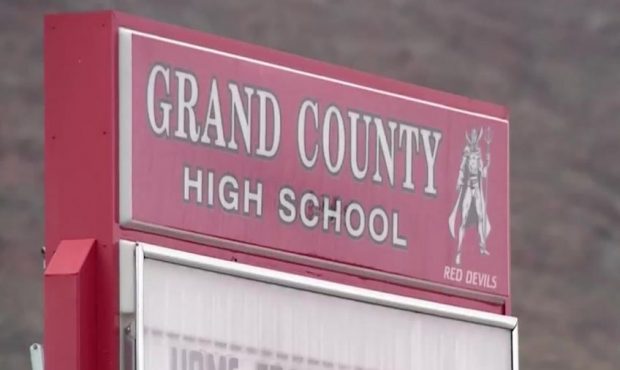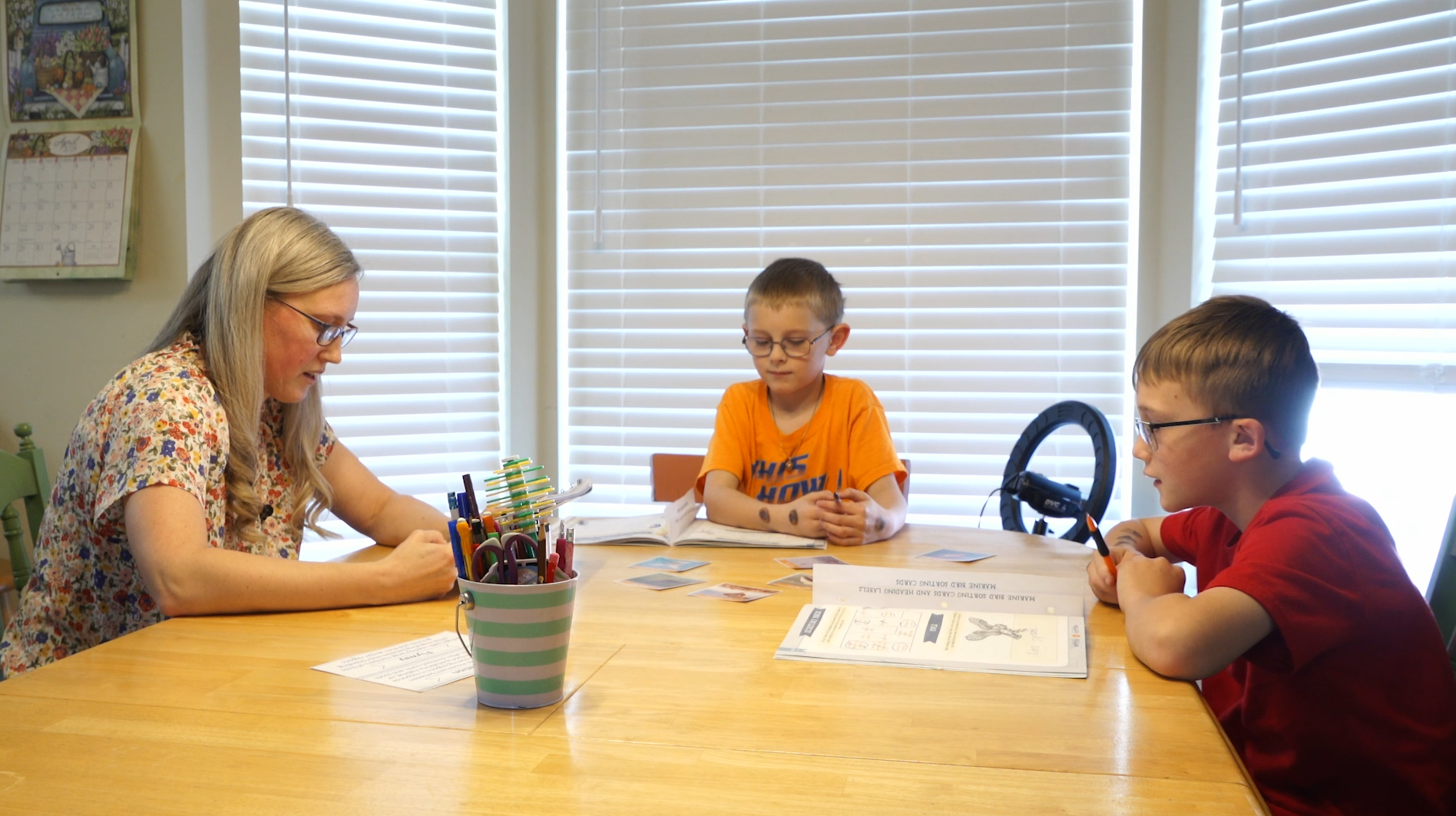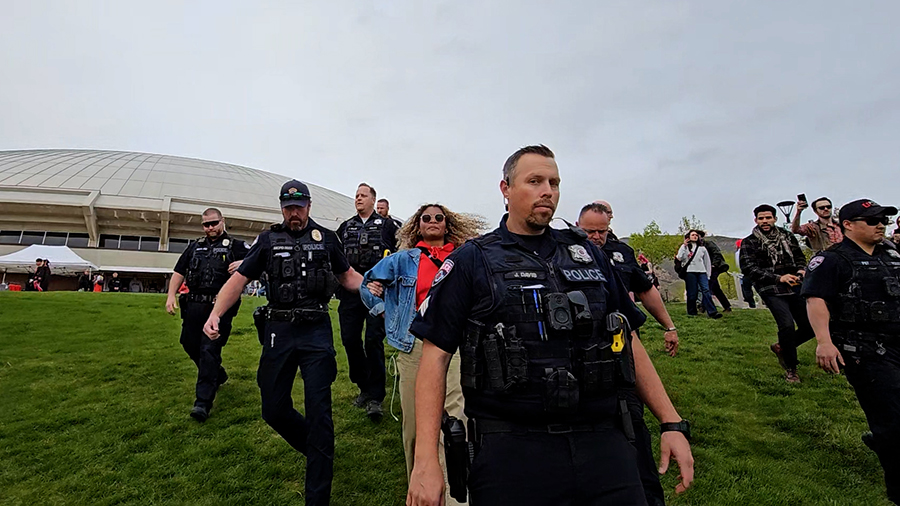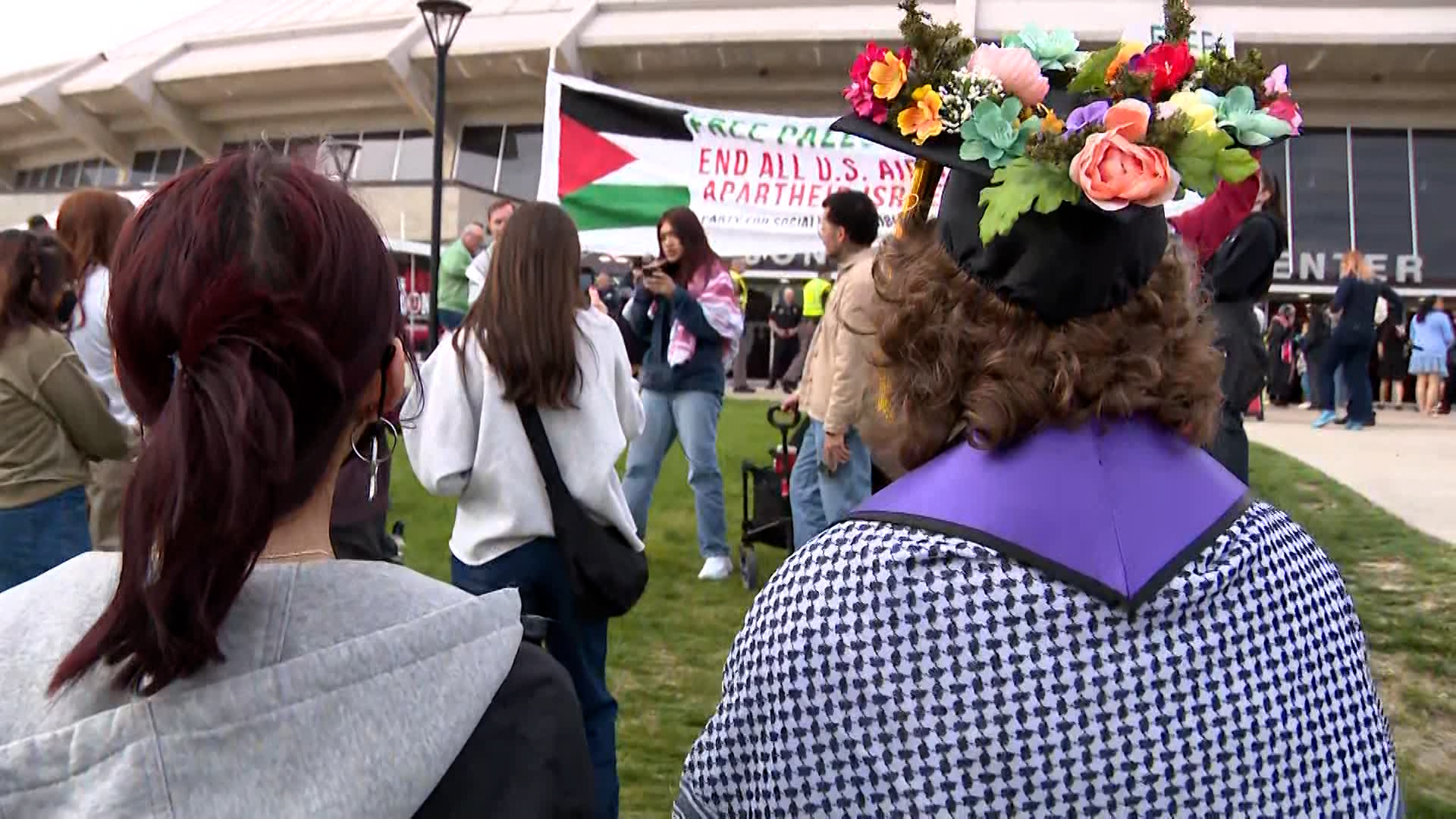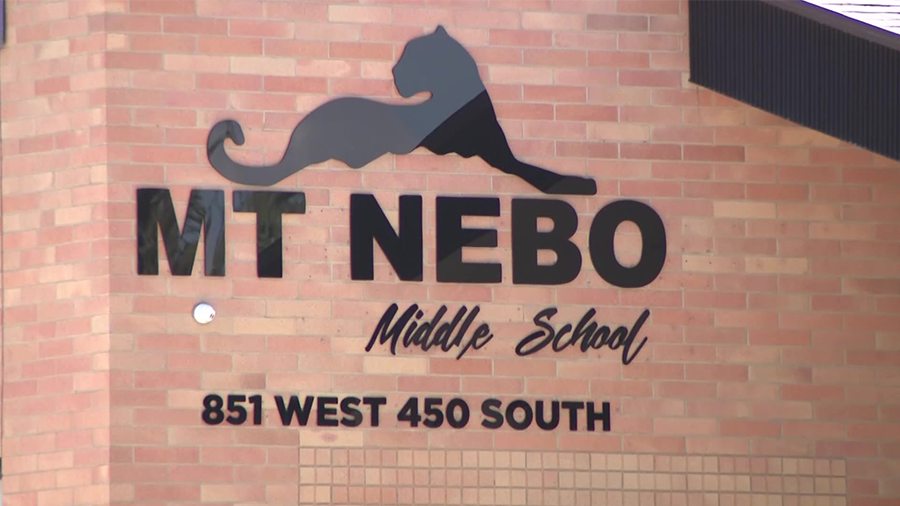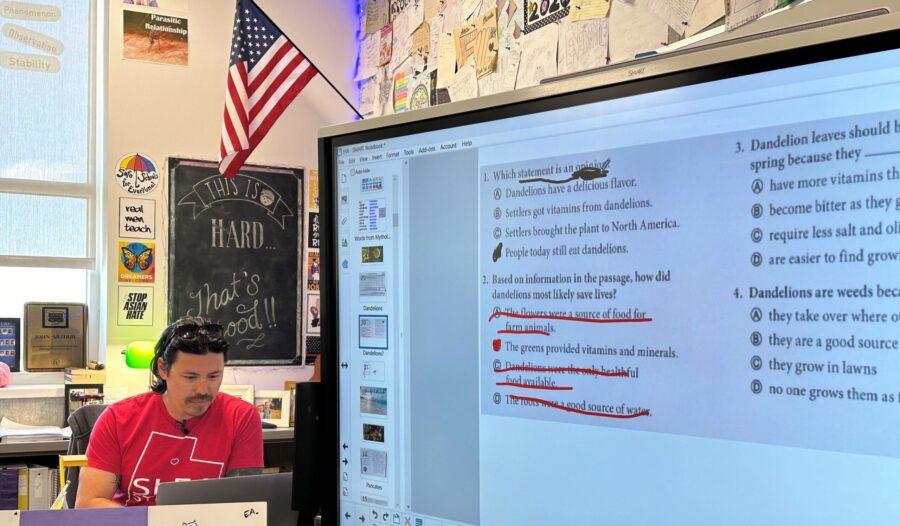Big changes proposed for Utah high school sports involving local, international students
Apr 24, 2024, 10:11 PM | Updated: 11:55 pm
MIDVALE — Some massive changes could be coming to high school sports in Utah.
Two proposals — one aimed at students attending schools on F1 visas and the other targeting all athletic transfers — were approved Wednesday by the executive committee of the Utah High School Activities Association.
The changes are an effort to do two things. First, reduce the number of transfer appeal hearings conducted when student-athletes want to switch to another high school. Second, crack down on allegations that some schools are recruiting international student athletes to play at local private high schools.
“In my time here, this is the most organized, widespread, and pernicious recruiting scheme I’ve seen,” said Mark Van Wagoner, attorney for the association for nearly 50 years, referring to a network of club coaches and independent scouts who sent teenage athletes from other countries to private schools in Utah. He encouraged the committee members — mostly high school principals — to take action and send both proposals to the group’s board of trustees, which will consider the changes on May 1.
“We can’t continue to not meet the problem,” Van Wagoner said. “Because this is causing harm to the association, it’s causing harm to children.”
Van Wagoner said there are ongoing investigations into the recruiting of F1 visa student-athletes, and at one point, he held a thick envelope of documents aloft to indicate he has been inundated with evidence of recruiting complaints.
KSL has been investigating the same allegations for two years and has found evidence of issues in private schools ranging from engagement in recruiting or accepting recruited student-athletes (through intermediaries like club coaches) for the main purpose of playing sports at the schools. There are also allegations of waived or reduced tuition, which all of the principals who spoke Wednesday denied.
New transfer rules
The changes to the transfer rules will simplify movement between schools for students, schools and the association staff.
“We had 150 appeal hearings last year,” Van Wagoner said. “We thought the rules were self-enforcing. They’re not. So we made some significant changes that I think are fair and probably make it more open than it was in the other direction.”
The new rules state that students who have played a sport at any Utah school within the past 12 months can transfer for any reason, but they will automatically be ineligible for 30 days or 50 percent of the games — whichever is greater.
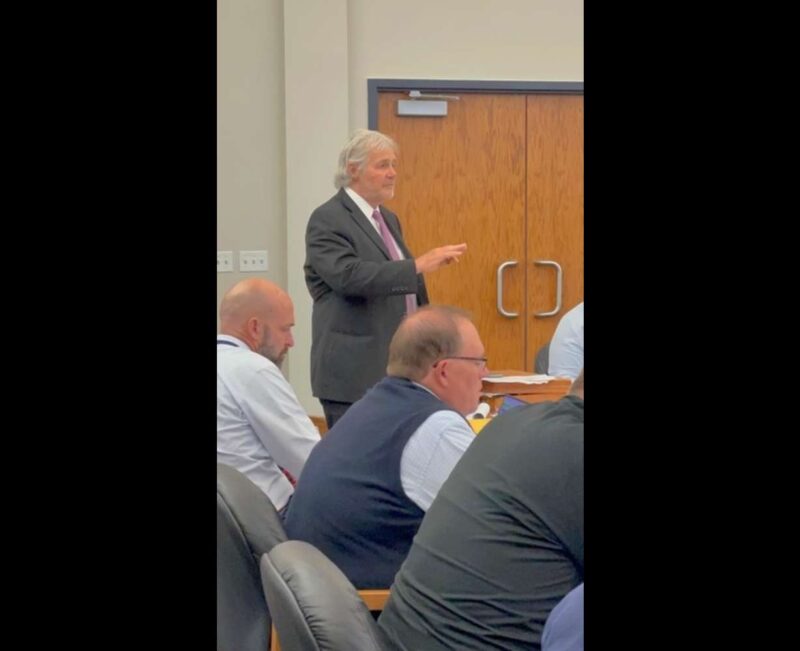
Utah High School Activities Association attorney Mark Van Wagoner explains why the committee needs to take action on new transfer and F1 visa rules in Wednesday’s committee meeting in Midvale. The rules were approved unanimously. (Amy Donaldson, KSL)
There are exceptions, but they’re specific and will mostly be handled between schools. Those exceptions are: school closure or elimination of a program, disciplinary removal (expelled from a school), divorce, death of parent, documented bullying, and bona fide change of residence.
No more guardianship situations if a student has a living parent, unless “there is a determination of abandonment.”
Visa students
The group also unanimously approved changes to the athletic eligibility of students who attend Utah schools on F1 visas.
Students who attend Utah schools on an F1 visa will not be eligible to play varsity sports under the new rules unless one of two things happens at the school level: A school can opt to go independent in a sport and not be a part of the Utah High School Activities Association, or a school can play F1 athletes on varsity teams but be ineligible for postseason play.
Three private school administrators spoke out against the proposed rule change before Van Wagoner addressed the issue with the committee — Patrick Lambert, principal at Judge Memorial High; Aaron Schrader, principal at Layton Christian Academy; and Galey Colosimo, principal at Juan Diego Catholic High.
“As one of the largest international schools in the United States, obviously, this decision has the potential to have a huge impact on Layton Christian,” Schrader said. “Our primary goal is that we would like to maintain our standing as a member in good standing with the UHSAA. … And we want to make sure that our students continue to have those opportunities (sanctioned by the association).”
The principals said it diminished the experience students could have at schools if they weren’t allowed to fully participate in whatever activities interest them, including sports.
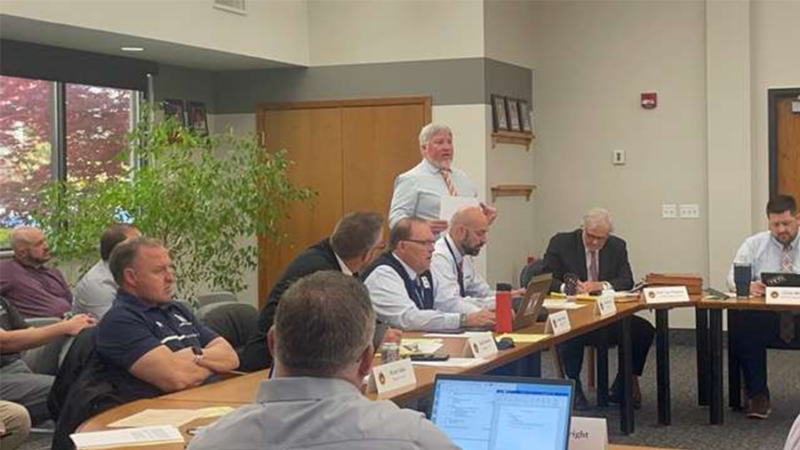
Judge Memorial Principal Patrick Lambert speaks against new F1 visa eligibility changes in Wednesday’s Utah High School Activities Association executive committee meeting in Midvale. (Amy Donaldson, KSL)
Colosimo said he didn’t understand singling out F1 visa students.
“But what might be an issue that’s underground here,” he said, “but I’m sure we’re all aware of, is the undocumented population. … International students tend to be in private schools. But undocumented students tend to be in public schools. And if you put those two side by side, it’s kind of the same thing. Except that with international students, they follow the rules.”
He said Juan Diego High’s F1 visa holders “complete the paperwork, they pay tuition, contrary to rumors, they all pay tuition, room and board. They do everything legally that they’re supposed to do in order to be in this country. Undocumented students don’t do anything. Right? … There’s no paperwork; you can’t even ask if they’re undocumented, and yet their participation is full.”
Many of the principals later expressed anger at Colosimo’s comparison of undocumented students to F1 visa holders and said there are no similarities. Undocumented students are considered local students, unlike those attending on visas, who are almost always part of an international or exchange program.
Van Wagoner read an email from a woman who is currently hosting an international student who said some international students are not protected by coaches and principals and could now be punished by not being allowed to participate in the “full high school experience” if they aren’t allowed to play sports. She said the adults that allowed these children “to be mistreated and used” should be held accountable. Van Wagoner said the association is concerned about all students and keeping them safe.
There was some discussion Wednesday about allowing F1 visa holders to play after one year, but it was rejected without much discussion.
“We are at a point, in my opinion,” said Northridge High Principal Jason Smith, “we have a major trust issue with some of our schools. … I don’t trust the schools. I don’t trust the coaches, I don’t trust what was just said. … Personally for me, and in Region 5, the trust is gone.”
Pinnacle Academy Principal Roberta Hardy said she sees the proposed rule change as just a first step in addressing what she described as a human rights issue.
“This is the first part,” she said. “But I want to go on record saying this is not the end. … I’m for sanctions, kicking people out whatever it takes, because this is ridiculous. … This is so heinous toward kids, that we’re bringing them here simply to use them.
“And I’ll fight with every last breath to keep going on. So I want the member schools that have come in today … I want them to hear what I’m saying. We’re not done. This isn’t the end. We’re just beginning.”


